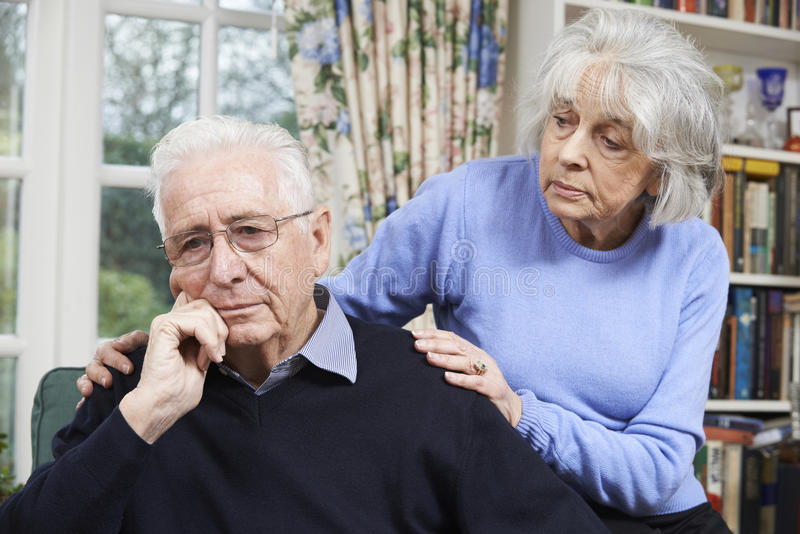Seniors and Depression – 14 Causes and Symptoms of Depression
Yesterday on my Facebook page someone trying to offer a word of encouragement about the COVID-19 pandemic shared what someone born in 1900 would have endured had they lived 75 years. They would have lived through the San Francisco earthquake of 1906, World War I, the Spanish Flu pandemic which infected 500 million people, roughly one-third of the world’s population at that time, the Great Depression, World War II, the Korean conflict, the beginning and end of U.S. involvement in Vietnam, the Kennedy assassination, and Richard Nixon’s resignation. Had they been living in the Houston Texas area, you could add the Galveston flood of 1900 and later in September of 1961, Hurricane Carla. Of course, not everyone living during these events was directly impacted, but they lived through them.
That’s a lot of history to live through. I’m sure you could add more to the list. It’s easy to understand why Tom Brokaw calls them the greatest generation. It’s also easy, I believe, to see how someone living through just any one of those events, not to say all, could be depressed. Reflecting on all those historic events makes me think that that’s exactly what they were – cataclysmic happenings with the hope of it never reoccurring with such force. That has not been the case. There have been other conflicts, hurricanes, earthquakes, and now the coronavirus.
Perhaps I’m a bit naïve or callous, but, to me, at least on face value, that’s how I view those events – as stand-alone incidents that had to be overcome and when ended, so was the subsequent fog of depression. I appreciate the fact that depression can be tied to a historic event, but people get depressed daily before, during, and after these events for reasons not connected to anything having global significance.
Seniors, for a variety of reasons, including age, health, and (personal) life-changing events, can be more susceptible to depression. I believe it’s valuable, especially during the current pandemic, to at least be educated on the causes and symptoms of depression. Armed with this knowledge, seniors and their loved ones can be better prepared to fight depression without any loss of independence. First, though, let’s define what it is we’re battling. According to the Mayo Clinic, “depression is a mood disorder that causes a persistent feeling of sadness and loss of interest … it affects how you feel, think and behave and can lead to a variety of emotional and physical problems.” Furthermore, according to information collected by Statista, a German online storage center for collecting and sorting data, 20% of seniors in the U.S. in 2017 were diagnosed with depression. That’s approximately 10 million seniors suffering from this disease and a good reason for exploring some of its causes and symptoms.
- CAUSES:
- Illness – According to numerous sources cited by the National Institute on Aging, seniors suffering from coronary disease, stroke or chronic illness are susceptible to depression.
- Isolation – Being alone can be brought about by many reasons, including loss or illness. Studies cited by the Texas Medical Center (TMC) show that seniors who are not connected to a community of family or friends may be more prone to despondency and depression.
- Loss – Brian Krans, a freelance writer, and producer, references in Healthline, an online provider of health information, research showing losses including the death of a spouse or health issues can make seniors more vulnerable to depression.
- Medication – According to WebMD, single medications or combinations can make seniors susceptible to depression.
- SYMPTOMS:
According to the Center for Disease Control (CDC), “someone who is depressed has feelings of sadness or anxiety that last for weeks at a time. He or she may also experience: …”
- Feelings of hopelessness and/or pessimism
- Feelings of guilt, worthlessness and/or helplessness
- Irritability, restlessness
- Loss of interest in activities or hobbies once pleasurable
- Fatigue and decreased energy
- Difficulty concentrating, remembering details and making decisions
- Insomnia, early-morning wakefulness, or excessive sleeping
- Overeating or appetite loss
- Thoughts of suicide, suicide attempts
- Persistent aches or pains, headaches, cramps, or digestive problems that do not get better, even with treatment
Everyone has bad days when nothing goes right. That’s normal. But when it’s persistent, worsening, and goes untreated then problems can set in. Seniors with any of these causes and outward symptoms can be negatively impacted and have decreased levels of independence, becoming more reliant on others for simple daily tasks. Recognizing the causes and symptoms will help us all be more independent and less reliant on others.
I truly believe each of us is, to one extent or another, a bit depressed. Daily life with all its stress and challenges is bad enough, now add being over 65 and dealing with multiple physical and emotional challenges consistent with aging. Some form of depression is almost inevitable. If you are comfortable sharing, I invite you to share in the space below how you or a loved one has coped with this disease. Who knows, you might be helping and encouraging someone who is currently struggling.


Recent Comments